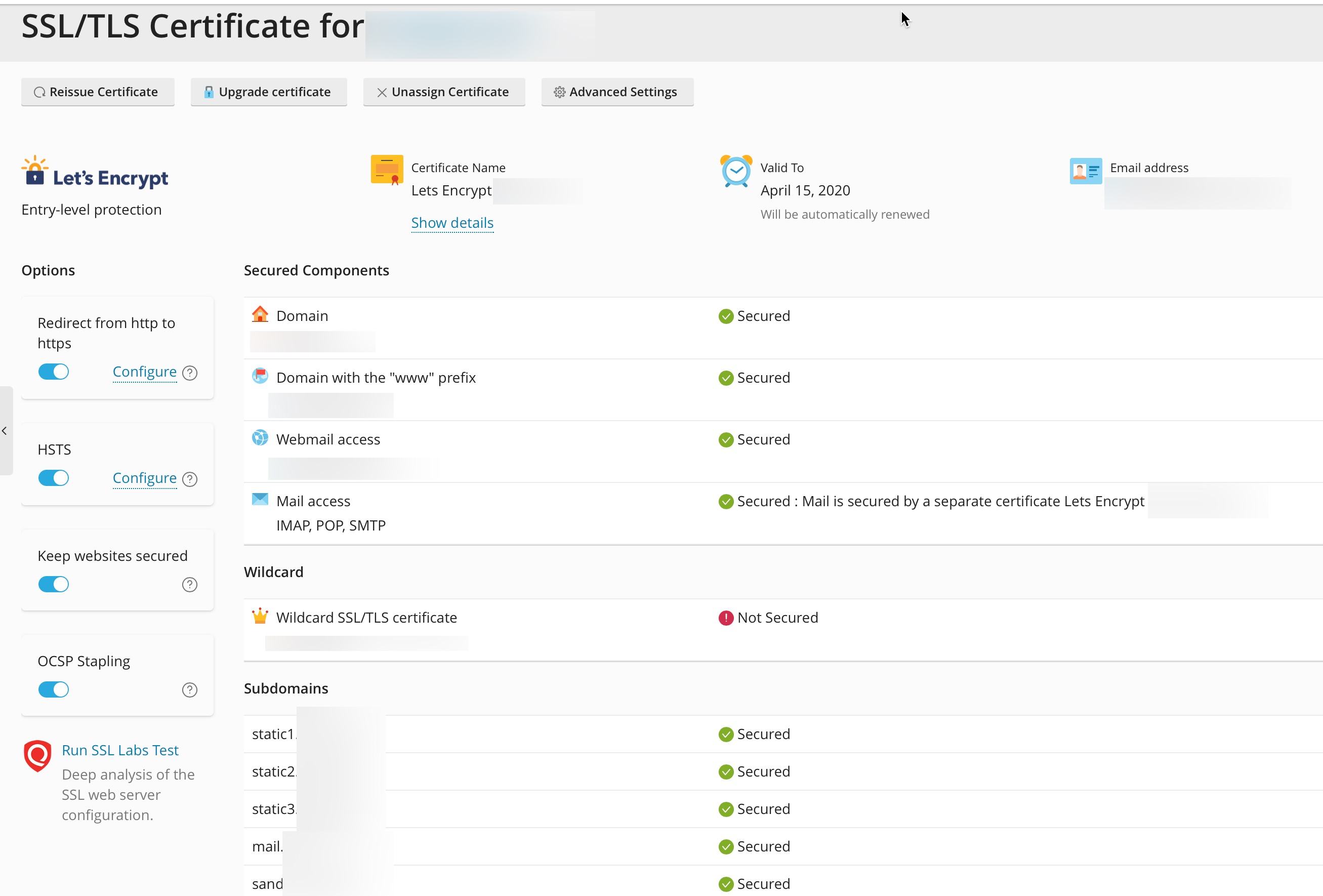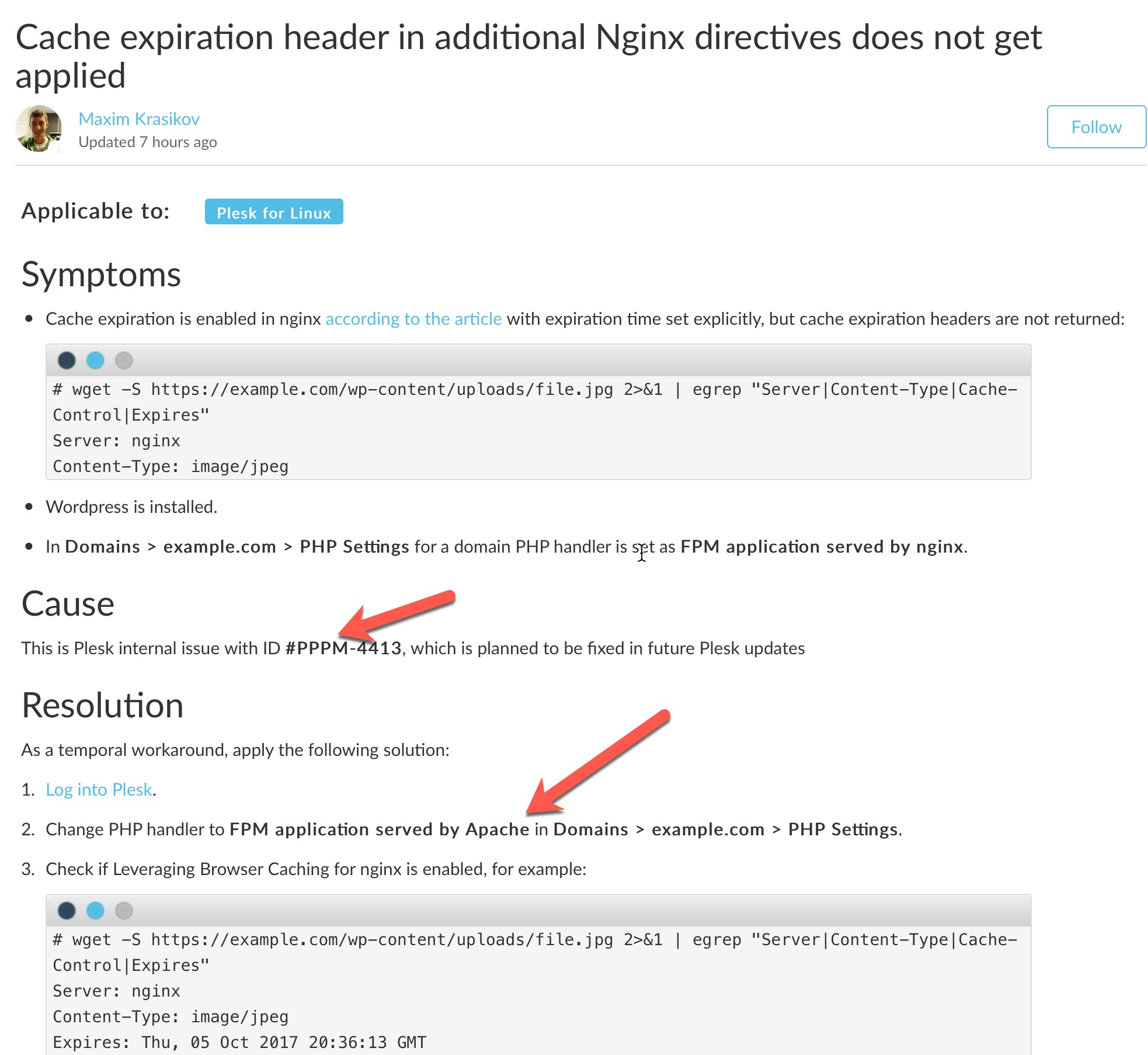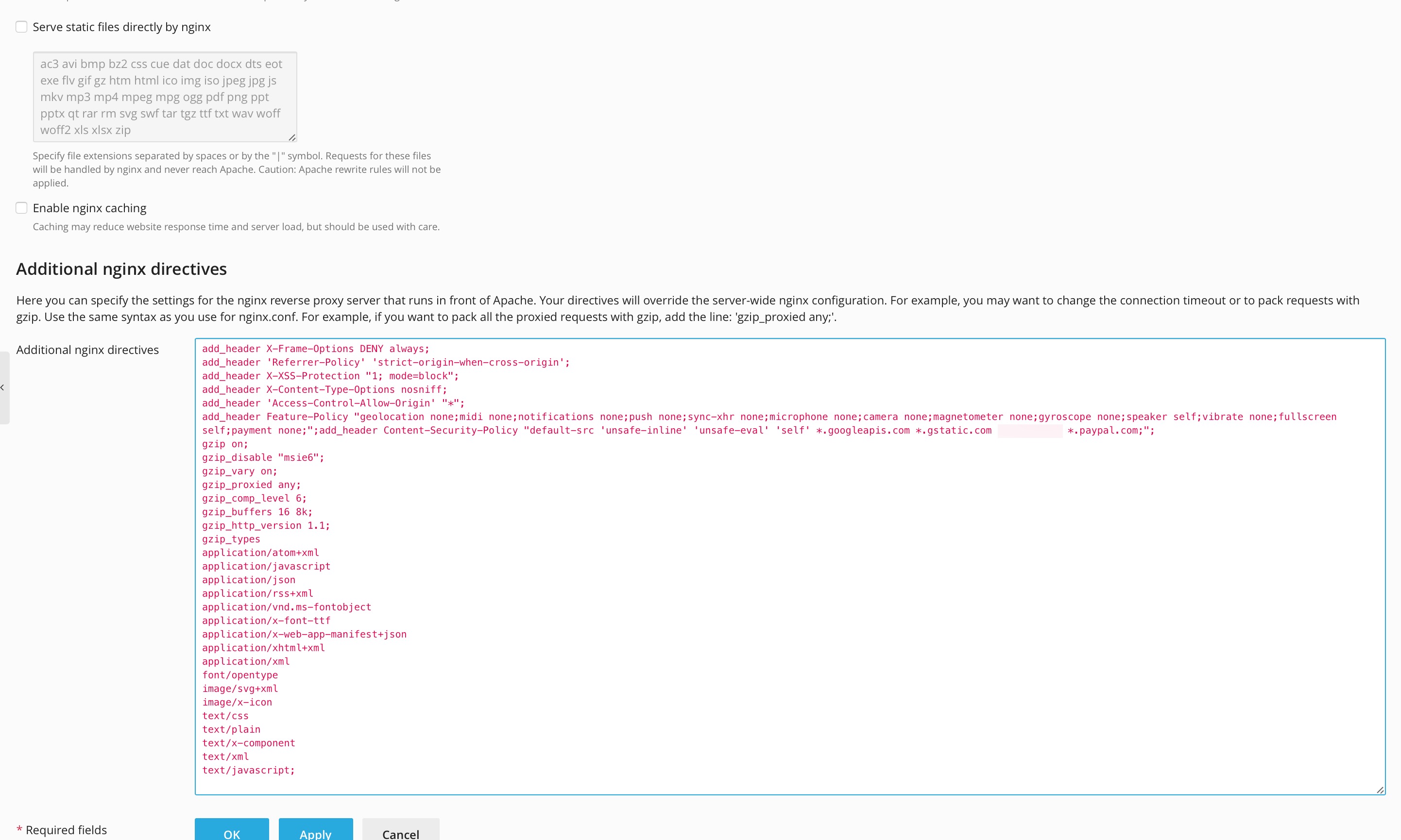[root@ufo cache]# cat /var/www/vhosts/system/domain/conf/nginx.conf
#ATTENTION!
#
#DO NOT MODIFY THIS FILE BECAUSE IT WAS GENERATED AUTOMATICALLY,
#SO ALL YOUR CHANGES WILL BE LOST THE NEXT TIME THE FILE IS GENERATED.
server {
listen IP.IP.IP.IP:443 ssl http2;
server_name domain;
server_name www.domain;
server_name ipv4.domain;
ssl_certificate /usr/local/psa/var/certificates/cert-ubByPa;
ssl_certificate_key /usr/local/psa/var/certificates/cert-ubByPa;
ssl_client_certificate /usr/local/psa/var/certificates/cert-7zLlB8;
client_max_body_size 128m;
proxy_read_timeout 600;
root "/var/www/vhosts/domain/httpdocs";
access_log "/var/www/vhosts/system/domain/logs/proxy_access_ssl_log";
error_log "/var/www/vhosts/system/domain/logs/proxy_error_log";
#extension letsencrypt begin
location ^~ /.well-known/acme-challenge/ {
root /var/www/vhosts/default/htdocs;
types { }
default_type text/plain;
satisfy any;
auth_basic off;
allow all;
location ~ ^/\.well-known/acme-challenge.*/\. {
deny all;
}
}
#extension letsencrypt end
#extension sslit begin
add_header Strict-Transport-Security "max-age=63072000; includeSubDomains" always;
#OCSP Stapling
ssl_stapling on;
ssl_stapling_verify on;
#extension sslit end
location / {
proxy_pass https://IP.IP.IP.IP:7081;
proxy_set_header Host $host;
proxy_set_header X-Real-IP $remote_addr;
proxy_set_header X-Forwarded-For $proxy_add_x_forwarded_for;
proxy_set_header X-Accel-Internal /internal-nginx-static-location;
access_log off;
}
location /internal-nginx-static-location/ {
alias /var/www/vhosts/domain/httpdocs/;
internal;
}
location ~ ^/~(.+?)(/.*?\.php)(/.*)?$ {
alias /var/www/vhosts/domain/web_users/$1/$2;
fastcgi_split_path_info ^((?U).+\.php)(/?.+)$;
fastcgi_param PATH_INFO $fastcgi_path_info;
fastcgi_pass "unix:///var/www/vhosts/system/domain/php-fpm.sock";
include /etc/nginx/fastcgi.conf;
}
location ~ ^/~(.+?)(/.*)?$ {
proxy_pass https://IP.IP.IP.IP:7081;
proxy_set_header Host $host;
proxy_set_header X-Real-IP $remote_addr;
proxy_set_header X-Forwarded-For $proxy_add_x_forwarded_for;
proxy_set_header X-Accel-Internal /internal-nginx-static-location;
access_log off;
}
location ~ \.php(/.*)?$ {
fastcgi_split_path_info ^((?U).+\.php)(/?.+)$;
fastcgi_param PATH_INFO $fastcgi_path_info;
fastcgi_pass "unix:///var/www/vhosts/system/domain/php-fpm.sock";
include /etc/nginx/fastcgi.conf;
}
include "/var/www/vhosts/system/domain/conf/vhost_nginx.conf";
}
server {
listen IP.IP.IP.IP:80;
server_name domain;
server_name www.domain;
server_name ipv4.domain;
client_max_body_size 128m;
proxy_read_timeout 600;
location / {
return 301 https://$host$request_uri;
}






